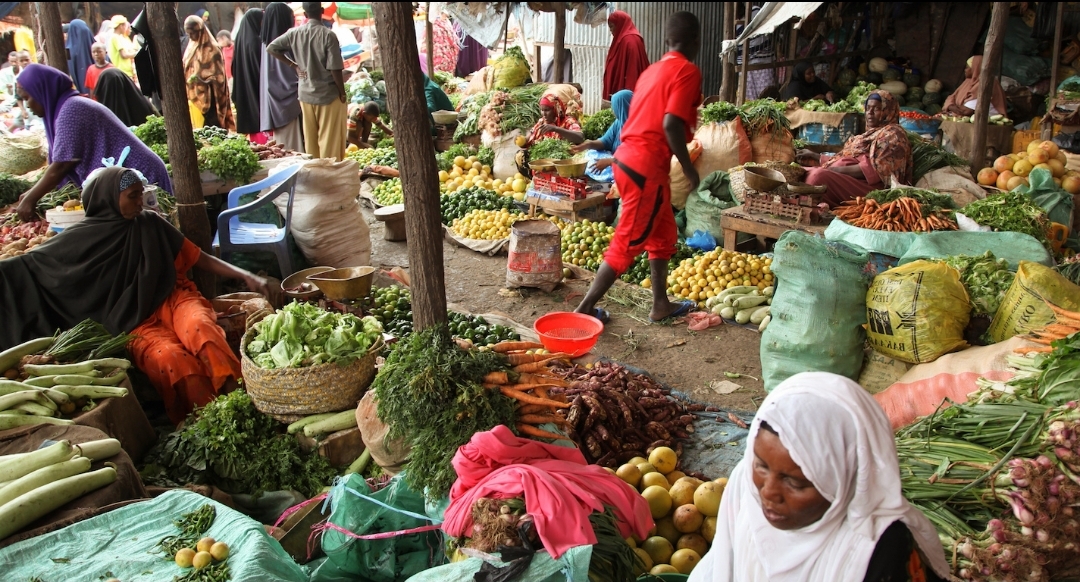African agriculture is a vital sector that employs millions of people and contributes significantly to the continent’s GDP. Despite its potential, the sector faces numerous challenges, including limited access to markets, inadequate infrastructure, and inefficient supply chains. Effective marketing and trade applications can help address these challenges and unlock the potential of African agriculture.
The Current State of African Agriculture
African agriculture is characterized by smallholder farmers who produce a significant portion of the continent’s food. However, these farmers face numerous challenges, including limited access to markets, finance, and technology. The lack of infrastructure, such as roads, storage facilities, and irrigation systems, further exacerbates these challenges. As a result, many African farmers struggle to compete in local and international markets.
Marketing Applications in African Agriculture
Marketing applications can help African farmers increase their productivity, improve the quality of their products, and access new markets. Some of the key marketing applications in African agriculture include:
- Digital Marketing: Digital marketing can help African farmers access new markets, promote their products, and connect with buyers. Social media platforms, e-commerce websites, and mobile applications can be used to reach a wider audience and increase sales.
- Branding: Branding can help African farmers differentiate their products and increase their visibility in the market. By creating a strong brand identity, farmers can build trust with their customers and increase their loyalty.
- Market Research: Market research can help African farmers understand their target market, identify new opportunities, and develop effective marketing strategies. By conducting market research, farmers can gain insights into consumer preferences, purchasing habits, and market trends.
- Supply Chain Management: Effective supply chain management is critical in African agriculture. By streamlining their supply chains, farmers can reduce costs, improve efficiency, and increase the quality of their products.
Trade Applications in African Agriculture
Trade applications can help African farmers access new markets, increase their exports, and improve their competitiveness. Some of the key trade applications in African agriculture include:
- International Trade: International trade can help African farmers access new markets and increase their exports. By exporting their products, farmers can earn foreign exchange, increase their income, and improve their livelihoods.
- Regional Trade: Regional trade can help African farmers access new markets and increase their trade within the continent. By trading with neighboring countries, farmers can reduce transportation costs, increase their market share, and improve their competitiveness.
- Trade Agreements: Trade agreements can help African farmers access new markets and increase their exports. By negotiating favorable trade agreements, farmers can reduce tariffs, increase their market access, and improve their competitiveness.
- Sanitary and Phytosanitary Standards: Sanitary and phytosanitary standards (SPS) are critical in African agriculture. By complying with SPS standards, farmers can increase their exports, improve the quality of their products, and reduce the risk of foodborne illnesses.
Benefits of Marketing and Trade Applications in African Agriculture
The benefits of marketing and trade applications in African agriculture are numerous. Some of the key benefits include:
- Increased Income: Marketing and trade applications can help African farmers increase their income and improve their livelihoods.
- Improved Competitiveness: By adopting marketing and trade applications, African farmers can improve their competitiveness and increase their market share.
- Access to New Markets: Marketing and trade applications can help African farmers access new markets and increase their exports.
- Food Security: By improving the efficiency of their supply chains and increasing their productivity, African farmers can contribute to food security and reduce the risk of food shortages.
Challenges and Limitations
Despite the benefits of marketing and trade applications in African agriculture, there are several challenges and limitations that need to be addressed. Some of the key challenges include:
- Limited Access to Finance: Many African farmers struggle to access finance, which limits their ability to adopt marketing and trade applications.
- Inadequate Infrastructure: The lack of infrastructure, such as roads, storage facilities, and irrigation systems, can limit the effectiveness of marketing and trade applications.
- Limited Capacity: Many African farmers lack the capacity and skills to adopt marketing and trade applications, which can limit their ability to compete in local and international markets.
- Policy and Regulatory Frameworks: Policy and regulatory frameworks can limit the effectiveness of marketing and trade applications in African agriculture. By creating an enabling environment, governments can support the adoption of marketing and trade applications.
Conclusion
Marketing and trade applications are critical in African agriculture. By adopting these applications, African farmers can increase their productivity, improve the quality of their products, and access new markets. However, there are several challenges and limitations that need to be addressed, including limited access to finance, inadequate infrastructure, limited capacity, and policy and regulatory frameworks. By addressing these challenges, African farmers can unlock the potential of their agriculture sector and contribute to food security, economic growth, and poverty reduction.
Recommendations
To unlock the potential of marketing and trade applications in African agriculture, several recommendations can be made:
- Invest in Infrastructure: Governments and private sector actors should invest in infrastructure, such as roads, storage facilities, and irrigation systems, to support the adoption of marketing and trade applications.
- Provide Access to Finance: Governments and private sector actors should provide access to finance for African farmers to enable them to adopt marketing and trade applications.
- Build Capacity: Governments and private sector actors should build the capacity of African farmers to adopt marketing and trade applications.
- Create an Enabling Environment: Governments should create an enabling environment by developing policy and regulatory frameworks that support the adoption of marketing and trade applications.
By implementing these recommendations, African farmers can unlock the potential of their agriculture sector and contribute to food security, economic growth, and poverty reduction.

